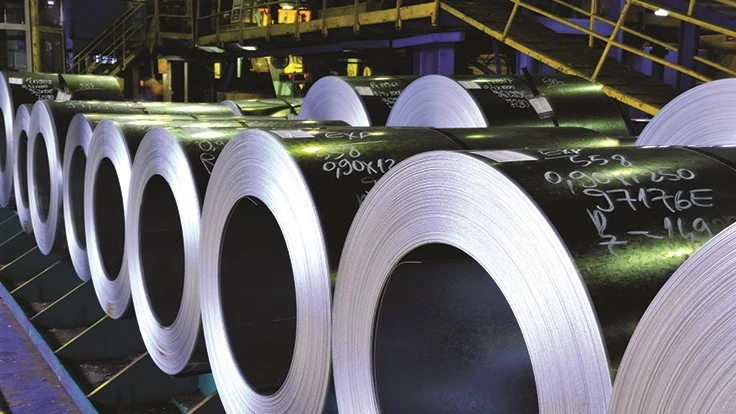
Photo provided by Dreamstime
The London office of Fitch Ratings has released an analysis identifying the United States as one of several places—along with India and Southeast Asia—likely to consume more steel in 2023 than it did in 2022. Fitch says it expects “incremental growth in steel consumption” in 2023 in those three markets.
Perhaps importantly for scrap recyclers, in addition to a U.S. steel sector that could enjoy modest growth, the analysis points to Turkey as one of several nations where “sentiment remains more positive than our midcycle assumptions, benefiting from protectionist trade measures, government support for infrastructure spending and cost advantages.” Other nations on that list are Brazil and India, which also function as importers of U.S.-generated ferrous scrap.
“The global steel sector will not fully recover in 2023 from the supply-demand shift in favor of end markets caused by reduced consumption in the second half of 2022," Fitch Ratings says. "We expect materially lower earnings for steelmakers as the global economic slowdown has ended the period of exceptionally high prices supported by postpandemic pent-up demand. Steel markets will normalize in 2023 with volumes broadly similar to 2021 levels, excluding China.”
In China, Fitch points to “targeted reduction of steel production” in that nation it says “will account for 20 million to 30 million tons” of reduced consumption there. There also will be “demand destruction” in other nations, Fitch says, leading to steel consumption declining up to 65 million metric tons in 2023 compared with this year.
“Prospects for steel companies remain gloomy in Europe due to high and volatile energy costs, the looming recession, waning consumer confidence, and the greater need to redesign supply chains for the steel sector and possibly its end markets,” Fitch writes.
Factors affecting 2023 supply and demand in the steel market include the condition of the Chinese property market and its response to government support measures, along with the timing of lockdown easing in the country. Trade aspects arising from Russia’s invasion of Ukraine, the potential escalation of China-Taiwan tensions, and evolving protectionist measures in major economies also could “shift the market,” Fitch says.
Latest from Recycling Today
- Indiana county awarded $65K recycling grant
- Mixed paper, OCC prices end year on downward trend
- Updated: CAA submits final draft program plan in Oregon
- Enviri names new president of Harsco Environmental business
- Survey outlines ‘monumental challenge’ of plastic packaging collection in UK
- Nippon Steel acknowledges delay in US Steel acquisition attempt
- BASF collaborates to study mechanical plastic recycling
- Commentary: navigating shipping regulations for end-of-life and damaged batteries





